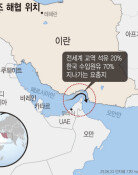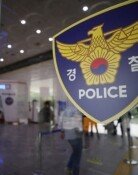[Editorial] U.S. Support Needed in Additional Beef Talk
[Editorial] U.S. Support Needed in Additional Beef Talk
Posted June. 13, 2008 07:57,
Trade Minister Kim Jong-hoon will leave for the United States today to hold an additional negotiation over the U.S. beef imports deal with his U.S. counterpart, U.S. Trade Representative Susan Schwab. He told a press conference yesterday that the visit is to come up with ways to bar imports of U.S. beef from cattle over 30 months old and that it will amount to renegotiation. The fate of the Lee Myung-bak administration hinges on the upcoming additional negotiation, because it will be a watershed for the nations political situation overwhelmed by the month-long massive candlelight protests.
Some government officials and a group of Grand National Party members were already there in Washington to elicit support from the United States, but they have yet to make any visible results. As Trade Minister Kim drew the clear line, the additional negotiation is not to turn the April 18 deal back to the drawing board. It is aimed at getting guarantee from the United States not to export beef from cattle older than 30 months.
Therefore, this negotiation is not about who will be a winner or a loser. If Korea and the United States fail to reach an agreement over the import ban on older cattle, both countries will be losers, because the crisis of Korea is not in the interest of America. Then, U.S. Congressional approval of the free trade accord agreed between the two nations will also face huge obstacles. Both parties should go all out to produce a win-win situation. In this regard, its heartening to hear U.S. Ambassador to Korea Alexander Vershbow say that additional understandings will come out in a couple of days.
The United States is advised to grasp the magnitude of the challenge the Korean government is now facing. The fledgling government, which promised to be a staunch ally to the United States, is teetering on the brink of collapse. At a time when the Korean government has exhausted all means possible to assuage the angry public, there is no choice but for America to make a concession to settle the issue. For Korea, the beef issue is no longer a trade issue but a political one.
If the Korean people continue to harbor apprehensions over the U.S. beef deal as well as the government and fail to be prevailed upon, the alliance between Korea and the United States will be dealt a devastating blow. As for the Korean government, it should put assuaging public sentiments before anything else, even though this risks losing international trust. The United States would do well to accept the Korean governments request.






![[단독]“두건 쓴 무장경비대 길목마다 검문…택시로 20시간 달려 탈출”](https://dimg.donga.com/c/138/175/90/1/wps/NEWS/IMAGE/2026/03/05/133470282.1.jpg)
